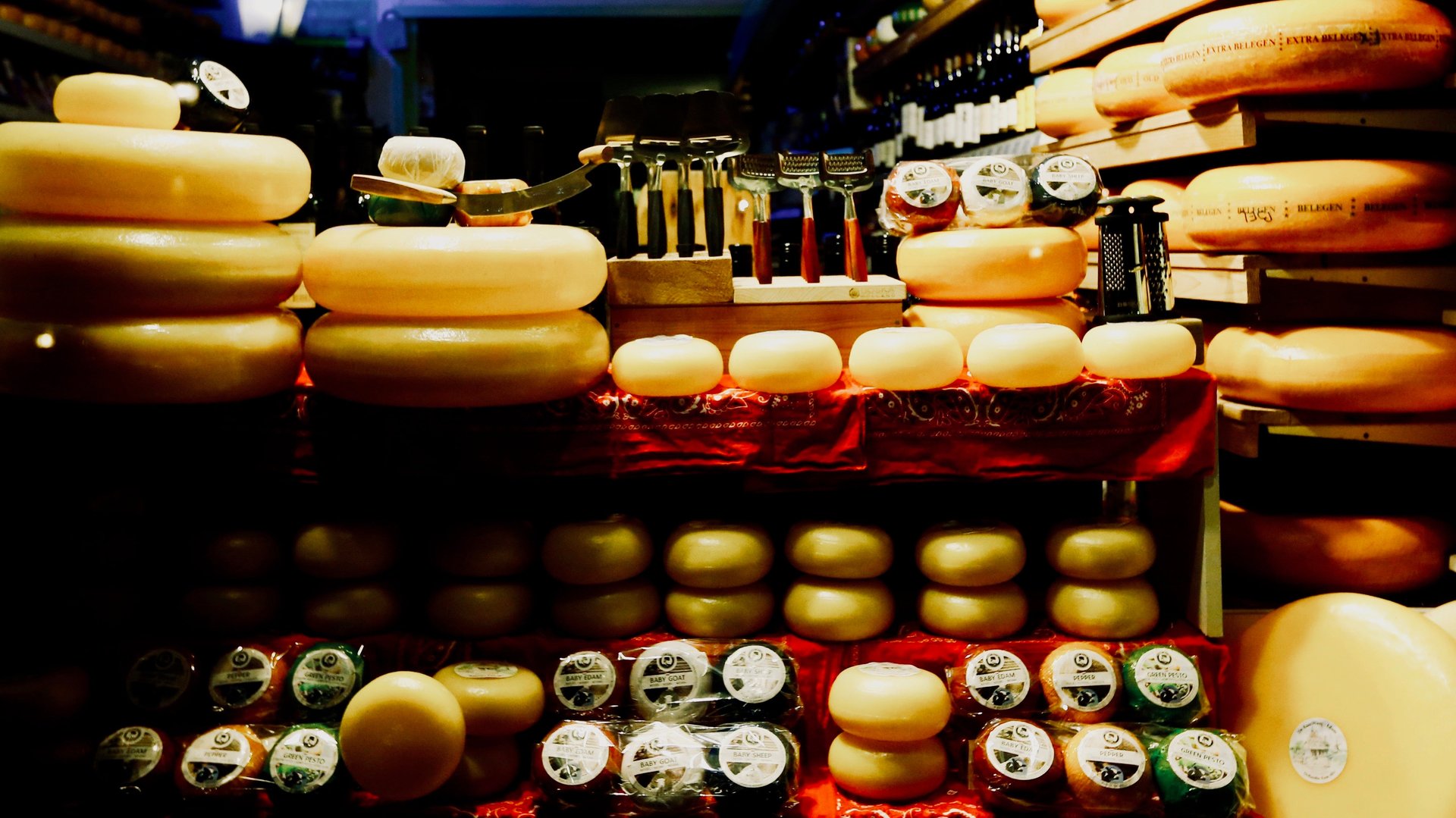Two Dutch cheesemakers’ legal battle asks if the taste of food can be copyrighted
Foodies and chefs may be miffed to discover that a taste—however unique or great—isn’t an original creation that qualifies for copyright.


Foodies and chefs may be miffed to discover that a taste—however unique or great—isn’t an original creation that qualifies for copyright.
In 2007, a Dutch company called Levola created a spreadable dip consisting of cream cheese and fresh herbs. It called the mixture ”Heksenkaas,” or witches’ cheese. It seems witches’ cheese worked its magic—so much so that in 2014, another Dutch cheesemaker called Smilde began making ”Witte Wievenkaas,” or “wise women’s cheese,” made with similar ingredients that yield, according to Levola, the same taste.
The dispute between the two cheesemakers led to a lawsuit that doubles as a philosophical riddle: Can a company own a flavor?
Levola sued Smilde for illegally copying its witches’ cheese, claiming that “wise women’s cheese” was a copyright violation. A hex might have been more effective than a lawsuit, however. In a case decided on Nov. 13, the EU Court of Justice has determined that taste can’t be copyrighted: The flavor of food is not a “work” within the meaning of European intellectual property law.
Copyright only applies to a “work”: That is, an expression of “an original intellectual creation.” And this unique expression must be precisely and objectively identifiable, which is to say that its originality must be technically evident, not just a question of preferences. In other words, it can’t be a matter of taste.
Yet flavors are inherently subjective. The decision explains:
Unlike, for example, a literary, pictorial, cinematographic or musical work, which is a precise and objective expression, the taste of a food product will be identified essentially on the basis of taste sensations and experiences, which are subjective and variable. They depend on, amongst other things, factors particular to the person tasting the product concerned, such as age, food preferences and consumption habits, as well as on the environment or context in which the product is consumed.
Two people eating witches’ cheese and wise women’s cheese may experience these delicacies as similar or different, and there’s no technical measurement to decide which determination is correct. As such, taste couldn’t qualify for copyright protection because “it is not possible in the current state of scientific development to achieve by technical means a precise and objective identification of the taste of a food product which enables it to be distinguished from the taste of other products of the same kind,” the court concluded.
So, the maker of witches’ cheese will have to live with the existence of wise women’s fromage, whether or not it’s an homage to the original creation.